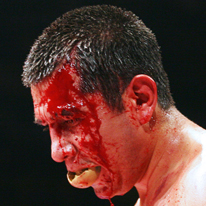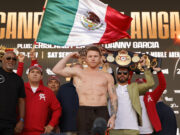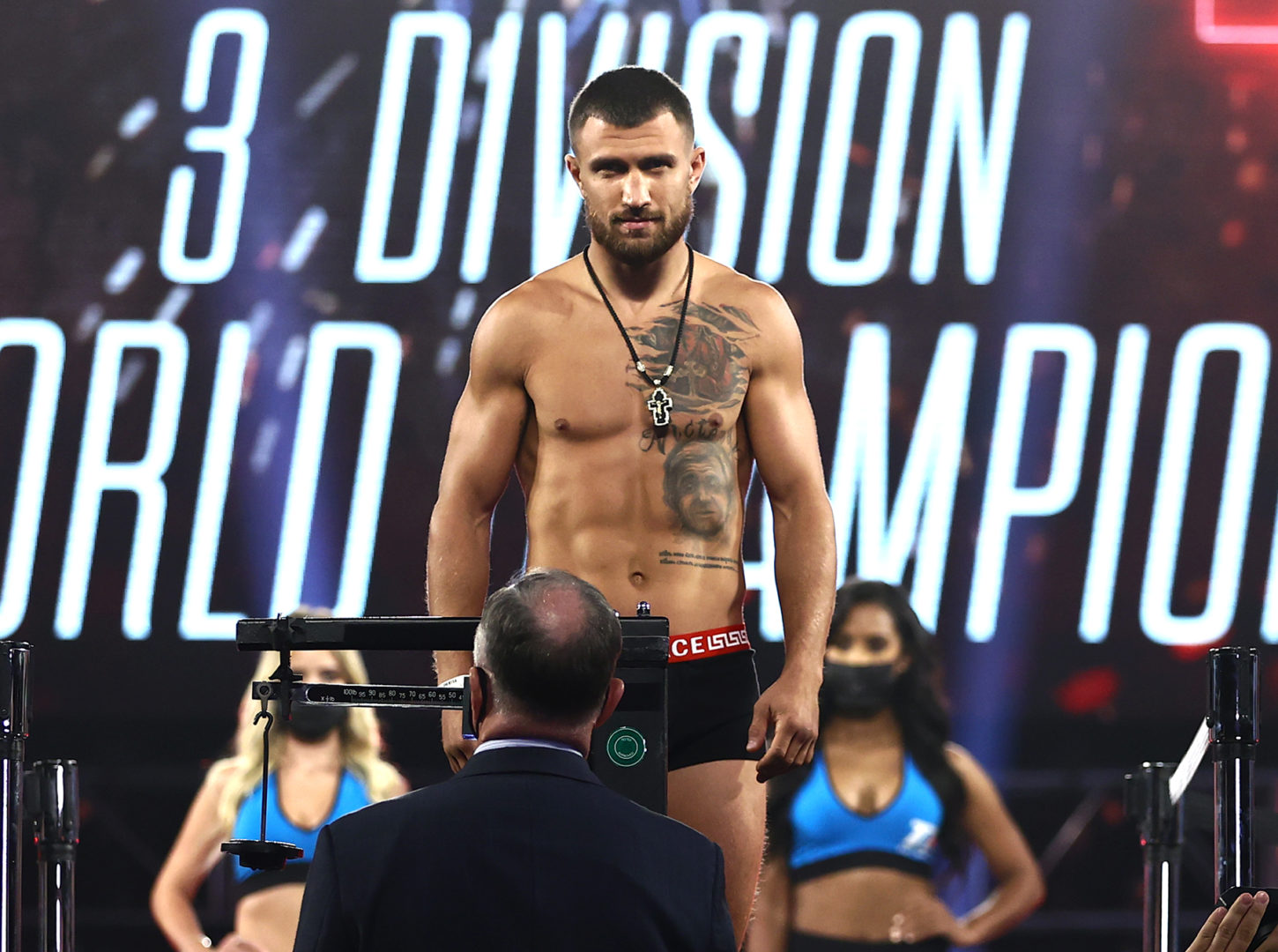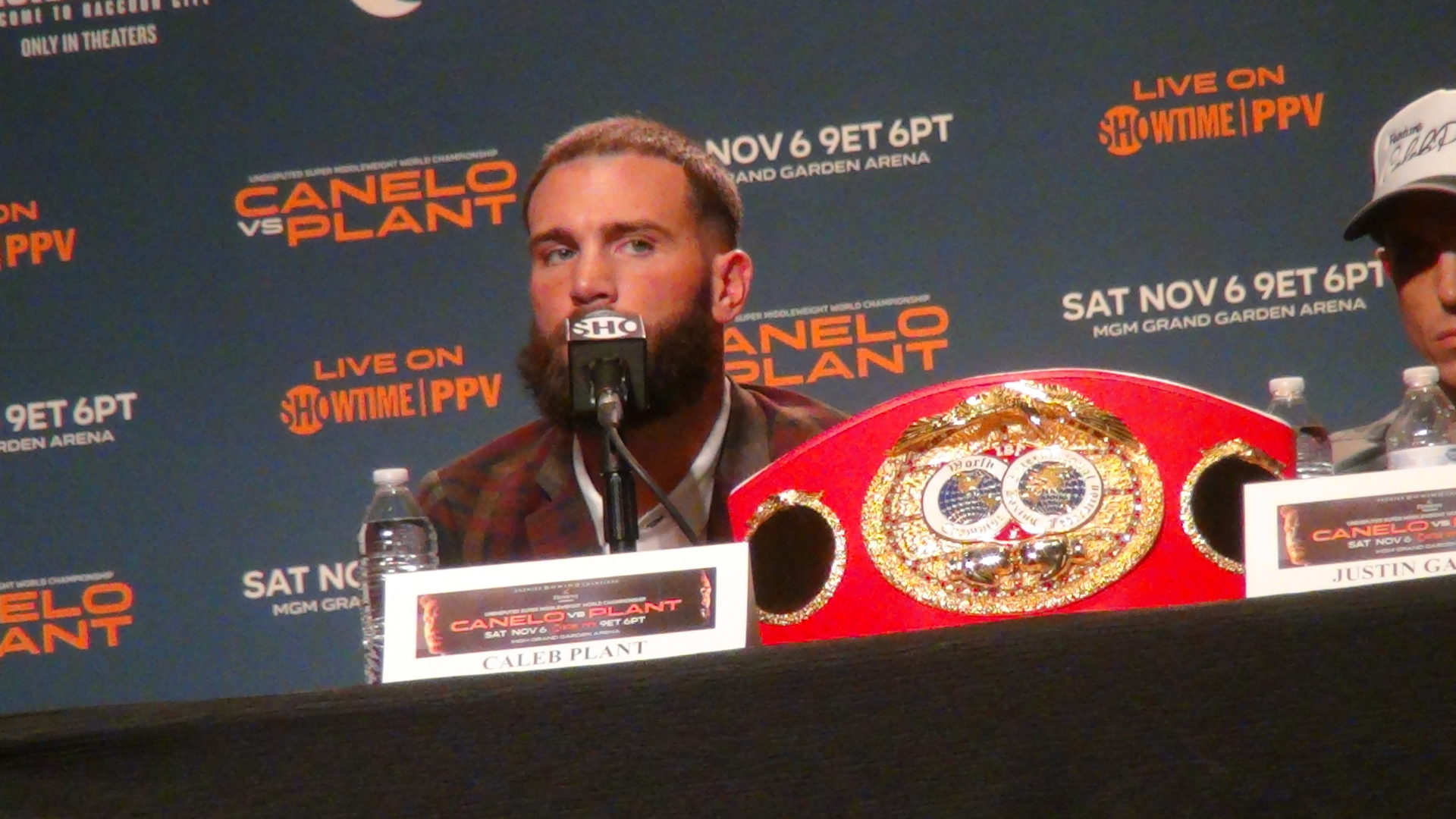
This will be about Marco Antonio Barrera’s continuing journey through prizefighting, inspired by its form. If you’re no longer interested in Barrera, this column is not for you. That cleared the room? This column is for posterity, then.
These days Barrera bears little resemblance to the proud, belligerent man who outsmarted and undressed Naseem Hamed on pay-per-view a decade ago. Instead, Barrera peddles name recognition, traffics in the past, wears too much fat on the body, and goes about his craft sloppily. But Barrera still finds a way to get by – working off his ample talent and capacity for calculation.
Can Barrera’s recent approach be duplicated with prose? Stick around, you’re about to find out.
The end of the serious part of Marco Antonio Barrera’s career came a few minutes after the end of Barrera’s WBC super featherweight championship match with Juan Manuel Marquez in 2007. Unless you understood Spanish you didn’t catch the sincerity at the end of Barrera’s post-fight interview of that fight Barrera lost. Barrera made a rhetorical question about the scorecards that unanimously went Marquez’s way: What good is it to have the best promoter if you’re not going to get the judging you want?
Why treat Barrera at all? Oh yeah. Barrera was in action Saturday as the headliner of a card conducted in an edifice on the campus of La Universidad de Guadalajara – apparently not “autonomous” as other Mexican universities. Barrera fought Jose Arias, a Columbian junior welterweight who’d gone 7-0 (7 KOs) last year alone!
Barrera, you imagine, left Barrera’s postfight interview after Barrera lost Barrera’s title to Marquez and took a firm line with Oscar De La Hoya, Barrera’s partner in Golden Boy Promotions: Get me a rematch with Manny Pacquiao, or get lost.
Barrera’s match with Pacquiao was the banner under which Barrera’s promoter called a truce with rival promoter Top Rank in the fall of 2007. It was an uneasy alliance, and not solely because Barrera turned Barrera’s rematch with Pacquiao into a retirement party – one that, given the way Pacquiao would go on to terrorize larger men, Barrera deserves a touch of retroactive praise for: Barrera glided round that ring for 36 minutes with Pacquiao, engaging only when imperiled, and proved that if you don’t wish to fight, Pacquiao won’t make you do it.
One note about Barrera’s Saturday opponent, the Columbian who scored seven knockouts in 2010: He turned 43 years-old in December. And his first fight of 2010 ended a sabbatical from prizefighting that was four months shy of 11 years.
That was two notes about Barrera’s Saturday opponent? So it was.
After the Pacquiao rematch Barrera sat at a makeshift podium in a converted Mandalay Bay conference room, and in English, said something like: I am happy with career.
Then in Spanish, Barrera said: I reserve my deepest gratitude for this beautiful sport and what it has given to Marco Antonio Barrera, and if I were to have this life to live another time, I would change not one thing.
Barrera’s goodbye to boxing was only a goodbye to Barrera’s promoter, though. The term “partner” being a malleable sort of thing in the blossoming Golden Boy Promotions empire, Barrera’s name didn’t have to be scraped from the shingle or struck from the company letterhead. Barrera had to take a year off and fight on a different continent, and that was that.
Yes, but how did it go Saturday? Honestly, Barrera looked like a fat old guy standing across from the Columbian sniper Arias who showed some brio in his ring entrance, fastening gloves to hips and sideskipping across the canvas. Barrera looked dull in Barrera’s royal-blue robe and vaseline as Barrera’d looked at the press conference Barrera’d done before Barrera’s June fight in San Antonio – which is dull as Barrera always looks while speaking in the hastily acquired English that, despite De La Hoya’s noble plans, never quite made Barrera the next Golden Boy.
Can you find Chengdu on a map of China? Barrera did, and plied Barrera’s wares at its Sichuan Gymnasium in the first fight since Barrera’s goodbye to the beautiful sport. After storming through Sammy Ventura (25-19) in the fall of 2008, Barrera went to La Universidad de Guadalajara – different edifice, same apparent lack of autonomy – in the first month of 2009 and escaped with a disqualification victory against Freudis Rojas (1-7-1).
Barrera brought a new combination to Saturday’s fight with Arias – lead left hook, right cross – and thirty seconds into the first round, Barrera loosed the opening volley of this two-punch combination on Arias, but Barrera did not get a chance to complete the combo because Arias, surprised that someone looking as Barrera did could move so quickly, was caught unawares and dropped to the mat then collected himself and made a good match of the next two minutes.
In the next round, though, Barrera spun Arias and hit him with angry right hands behind the left ear and a few spiteful left hooks that Barrera muscled much as Barrera threw them, and Arias was down for the second time in the fight, in the opening minute of the second round, and before he could make much of a contest of that round, Barrera had him staggered again and stayed on the assault till the referee stepped between the men and ensured the Jaliscienses who’d gathered to see Barrera prevail saw just that.
For the five minutes of Saturday’s fight, Barrera was big and sloppy but did enough to make a point – just like those sentences above.
Then there was that abortive thing that happened in Barrera’s match with Amir Khan in England – the coming out party for Khan’s new style under trainer Freddie Roach. A gory gash caused by an accidental headbutt that should have seen the fight stopped early continued to gush blood all about Barrera’s face till the fourth round was in the books – Barrera’s name was on Khan’s resume – and the doctor could decide, quite predictably, that enough was enough and it was time to go to the jolly good scorecards.
In San Antonio 15 months after the Khan debacle, Barrera was signed with a new promoter, Top Rank – once more feuding with Golden Boy Promotions but proud of its acquisition of De La Hoya’s first partner – and the prefight line, in English, was that Barrera had returned to the beautiful sport to become the first Mexican to win championships in four weight classes. In Spanish, of course, Barrera laughed that one off and said it was about “erasing” the Khan match and giving Mexicans a last chance to see Marco Antonio Barrera.
And that was the last time Barrera’s continuing journey made any sense whatever. Saturday, fighting on Fox Deportes – part of your local cable provider’s Español package – Barrera doubtfully made one percent the purse Barrera’d earned for Barrera’s fight with Marquez four years ago. It’s not about money, in other words; there is no cupidity in this comeback.
And it’s not about Barrera’s inability to do something else, either. Barrera is smart as any prizefighter you’ll meet. No, Barrera’s odyssey through the margins of prizefighting, anymore, appears to be about a lack of imagination. Barrera simply can’t be bothered to think of something better to do with Barrera’s time or talents.
Bart Barry can be reached at bbarry@15rounds.com





















